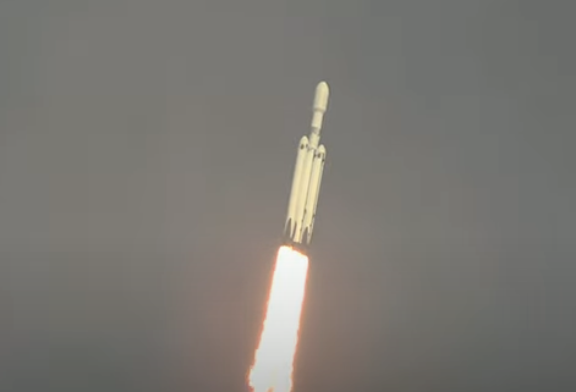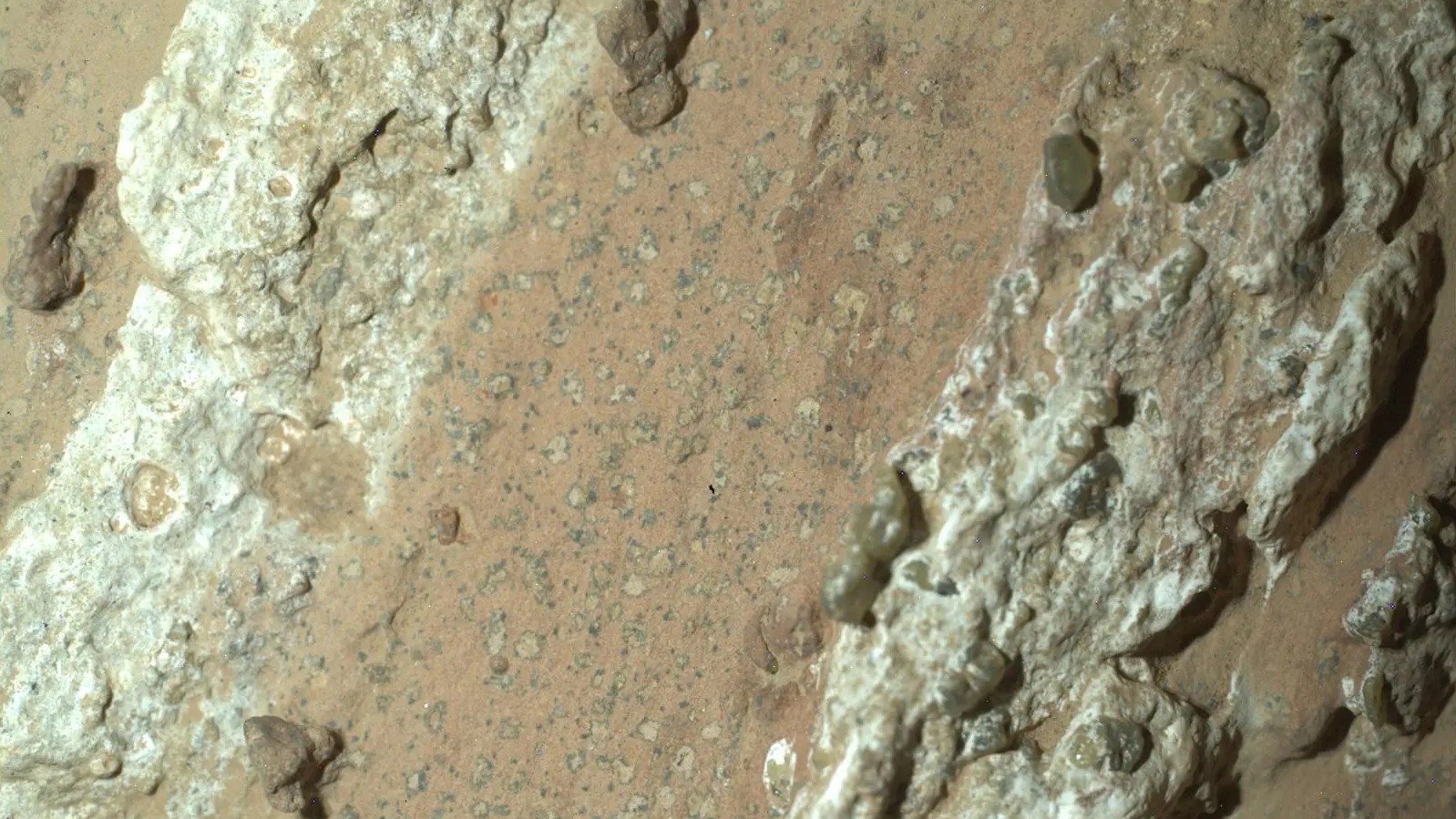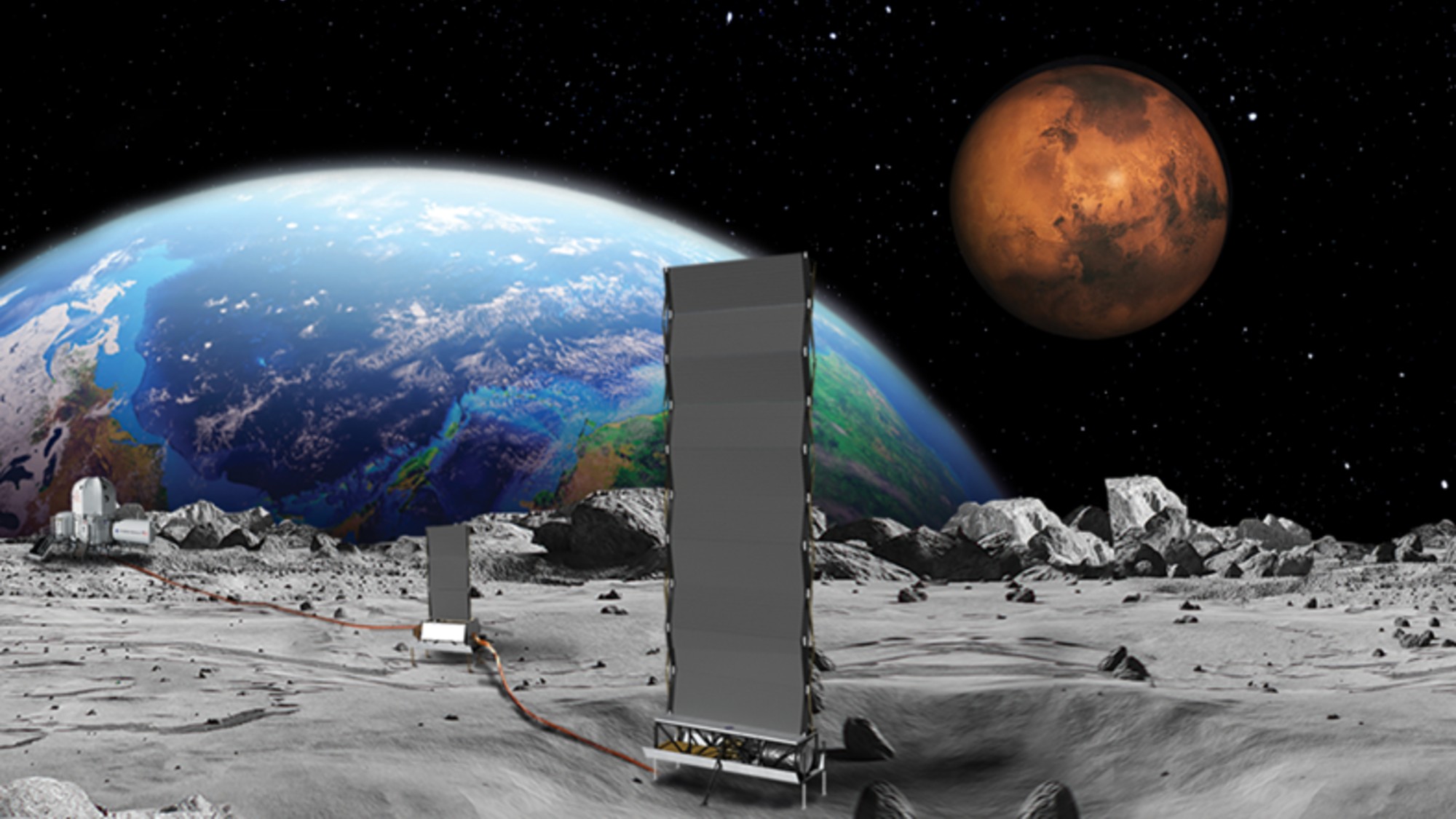SpaceX launches first Falcon Heavy rocket in 3 years


A free daily email with the biggest news stories of the day – and the best features from TheWeek.com
You are now subscribed
Your newsletter sign-up was successful
SpaceX's Falcon Heavy, the world's most powerful rocket, blasted toward the stars for the first time in three years on Tuesday.
The behemoth rocket launched at 9:41 a.m. ET from Kennedy Space Center in Florida. The Falcon Heavy took to the skies for mission USSF-44, a classified operation aimed at carrying additional satellites into orbit for military use. CNBC reported that USSF-44 is Falcon Heavy's first national security-level mission.
Following the successful launch, SpaceX — helmed by controversial tech mogul Elon Musk — landed only the Falcon Heavy's side booster rockets. The spacecraft's central booster was left to plunge into the ocean, as U.S. Space Systems Command said it would not have enough fuel left to guide it home.
The Week
Escape your echo chamber. Get the facts behind the news, plus analysis from multiple perspectives.

Sign up for The Week's Free Newsletters
From our morning news briefing to a weekly Good News Newsletter, get the best of The Week delivered directly to your inbox.
From our morning news briefing to a weekly Good News Newsletter, get the best of The Week delivered directly to your inbox.
Tuesday's launch is one of very few trips that Falcon Heavy has taken since its debut in 2018. Since then, SpaceX has launched just two other Falcon Heavy missions, and the rocket's last flight occurred in June 2019. The majority of SpaceX missions are undertaken by the company's Falcon 9 rocket, a smaller vessel that has gone on nearly 50 missions just this year.
The small number of Falcon Heavy launches is in part due to a backlog of customer payloads that are not ready to fly, and CNBC noted there are still around 12 missions still planned.
Both Falcon Heavy and Falcon 9 are likely to be replaced by SpaceX's deep-space launch vehicle, Starship, which is scheduled to have its first orbital test flight later this year.

A free daily email with the biggest news stories of the day – and the best features from TheWeek.com
Justin Klawans has worked as a staff writer at The Week since 2022. He began his career covering local news before joining Newsweek as a breaking news reporter, where he wrote about politics, national and global affairs, business, crime, sports, film, television and other news. Justin has also freelanced for outlets including Collider and United Press International.
-
 The ‘ravenous’ demand for Cornish minerals
The ‘ravenous’ demand for Cornish mineralsUnder the Radar Growing need for critical minerals to power tech has intensified ‘appetite’ for lithium, which could be a ‘huge boon’ for local economy
-
 Why are election experts taking Trump’s midterm threats seriously?
Why are election experts taking Trump’s midterm threats seriously?IN THE SPOTLIGHT As the president muses about polling place deployments and a centralized electoral system aimed at one-party control, lawmakers are taking this administration at its word
-
 ‘Restaurateurs have become millionaires’
‘Restaurateurs have become millionaires’Instant Opinion Opinion, comment and editorials of the day
-
 NASA’s lunar rocket is surrounded by safety concerns
NASA’s lunar rocket is surrounded by safety concernsThe Explainer The agency hopes to launch a new mission to the moon in the coming months
-
 Blue Origin launches Mars probes in NASA debut
Blue Origin launches Mars probes in NASA debutSpeed Read The New Glenn rocket is carrying small twin spacecraft toward Mars as part of NASA’s Escapade mission
-
 Dinosaurs were thriving before asteroid, study finds
Dinosaurs were thriving before asteroid, study findsSpeed Read The dinosaurs would not have gone extinct if not for the asteroid
-
 Africa could become the next frontier for space programs
Africa could become the next frontier for space programsThe Explainer China and the US are both working on space applications for Africa
-
 NASA reveals ‘clearest sign of life’ on Mars yet
NASA reveals ‘clearest sign of life’ on Mars yetSpeed Read The evidence came in the form of a rock sample collected on the planet
-
 SpaceX breaks Starship losing streak in 10th test
SpaceX breaks Starship losing streak in 10th testspeed read The Starship rocket's test flight was largely successful, deploying eight dummy satellites during its hour in space
-
 Rabbits with 'horns' sighted across Colorado
Rabbits with 'horns' sighted across Coloradospeed read These creatures are infected with the 'mostly harmless' Shope papilloma virus
-
 Why does the US want to put nuclear reactors on the moon?
Why does the US want to put nuclear reactors on the moon?Today's Big Question The plans come as NASA is facing significant budget cuts
